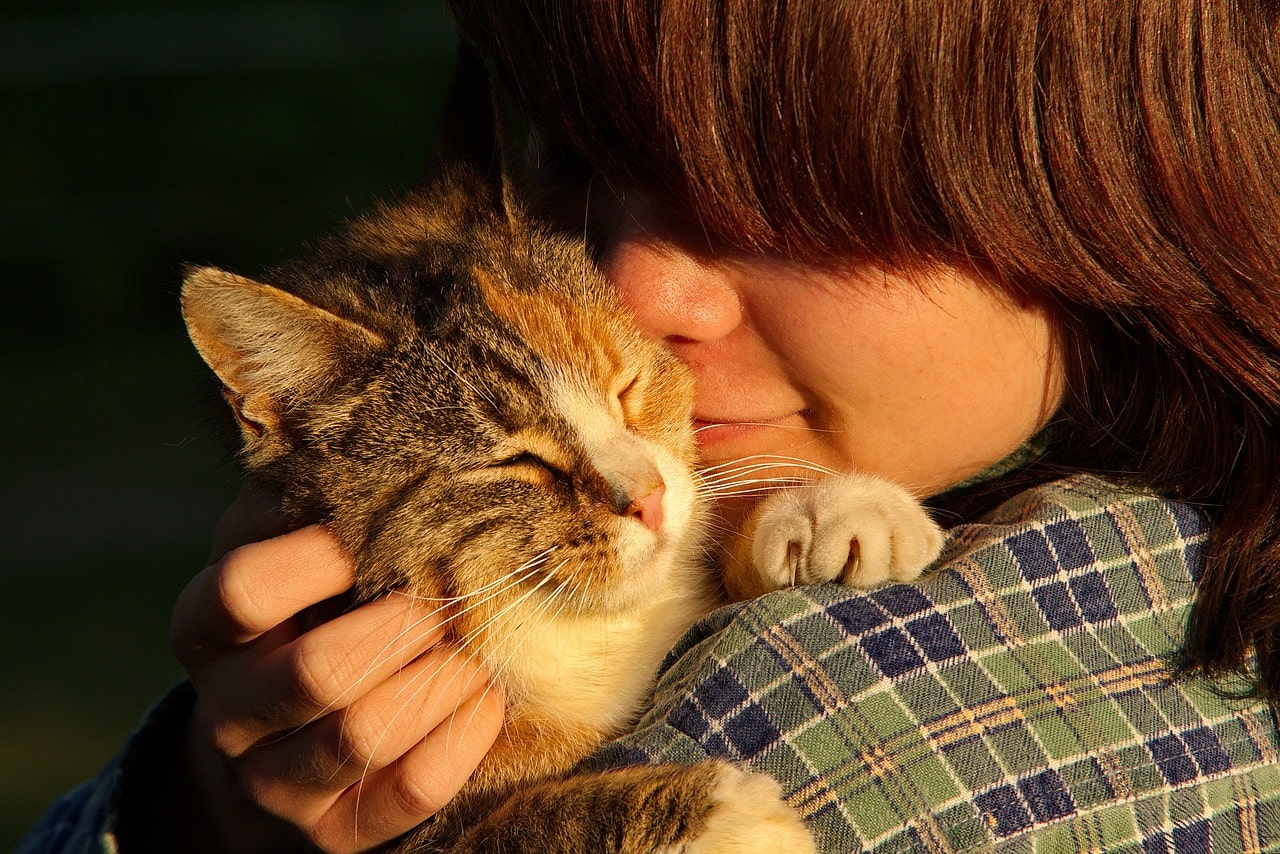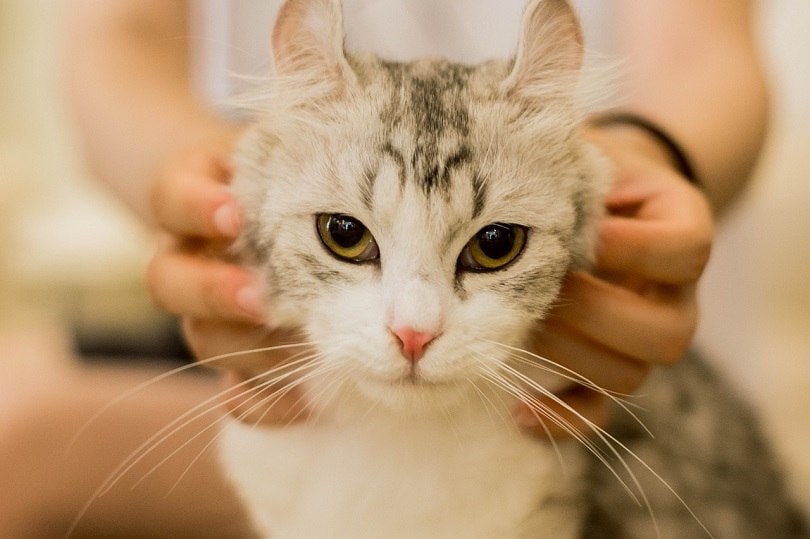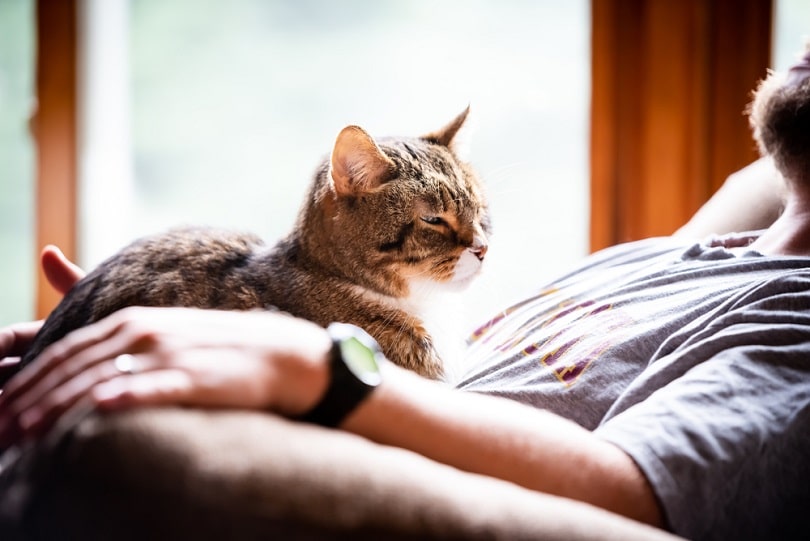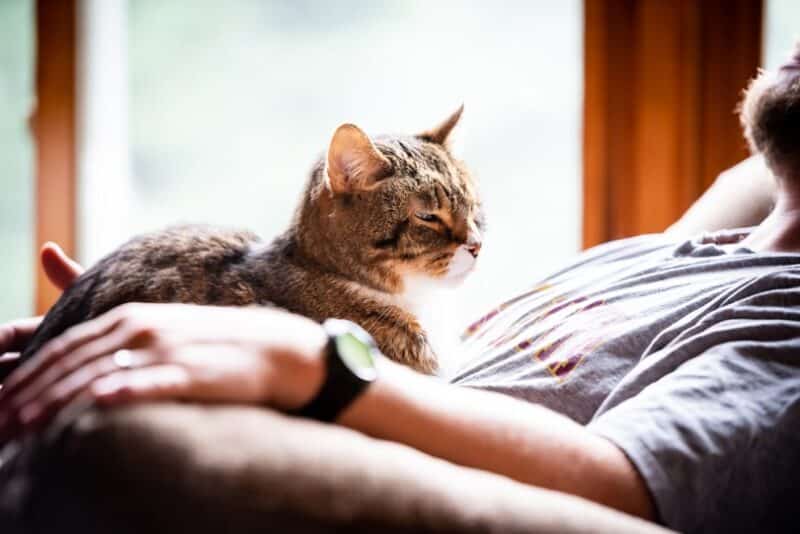You may have heard that as a dog owner, you need to establish dominance and be the “pack leader1.” Since dogs run in packs in the wild, this is a way to show your dog that you set the rules, boundaries, and limitations for them when they are in your home. But do cats feel the same way? Can cats have an alpha human or pack leader?
In short, the answer is no. Cats don’t run in packs naturally. They are solitary hunters2 in the wild, living mostly alone or sometimes with a mate. Cats don’t view humans as alpha, but they still love their owners and can even have a favorite person in the household.

Why Do Cats Have a Favorite Person?
Many people think that the person who feeds the cat is automatically the cat’s favorite. While this might be true in some cases, it’s more complicated than that. Cats like — and dislike — different people for various reasons, but just providing food doesn’t necessarily make you number one in your cat’s eyes.
Cats use different cues to communicate with humans. Vocalizations, sounds, and body language are a cat’s ways to tell us how they’re feeling and what they need. Even cats that were well socialized during their early life may choose one person whom they tend to gravitate toward more than others.
It comes down to communication. If one person picks up on your cat’s communication cues and responds to them, even if they aren’t the cat’s primary caregiver, your cat may favor that person because they understand them. When people understand their needs, cats will want to communicate with them more. They provide cats with a feeling of safety and security.

How to Become Your Cat’s Favorite Person
If you’d like to build a better bond with your cat, here are a few things that you can do.
1. Socialize from Day One
Show your cat that you can be relied on for more than food and litter scooping. While your cat does appreciate these things, they also want to know that you will keep them safe and protect them. Offer playful interaction when they want it. If your cat is showing you that they want to play, take a few minutes and engage with them. If it’s not possible at that moment, make a note to set aside time later to give your cat the playtime and attention that they’re looking for.
2. Respect Their Space
Cats like their alone time to rest and sleep. Sometimes they just don’t want to be disturbed. If you’re forcing your cat to engage with you when they’d rather be alone, they will feel like you don’t read their cues and they can’t communicate with you. If they wander off to spend time alone, give them their space until they feel like coming back to interact with you.

3. Watch for Cues
If your cat is purring, rubbing against you, meowing, or jumping into your lap, they may be expressing their need for something. They may want food, attention, petting, or just to be near you. Once you figure out what your cat is trying to tell you, you’ll be able to communicate back to them by meeting their needs.
If your cat is growling or hissing or has their ears flat to their head, these are signs that they are unhappy or upset about something. Aggressive body language and behavior mean that your cat does not want to interact with you at that moment and should be left alone until they calm down.
Final Thoughts
Cats don’t have an alpha human the way that dogs have a pack leader, but they can have a favorite person whom they prefer to be around. Cats naturally gravitate toward those whom they feel they can communicate with. If you’d like to strengthen the bond between you and your cat, we hope that these suggestions can help you do that. Once you can communicate better with your cat, your relationship with them will improve.
See also:
- Can Cats Tell What a Human Baby Is? Everything You Need to Know!
- How to Show Dominance to a Cat (10 Great Tips)
Featured Image Credit: Debra Anderson, Shutterstock












